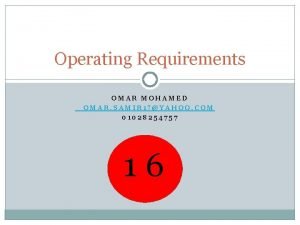Islam as Politics Mohamed Merchant Prophet Political Leader




















- Slides: 20

Islam as Politics


Mohamed: Merchant, Prophet, Political Leader Revelation: From Merchant to Prophet Hijra 622 Birth of the Umma, Community of Believers Tribal loyalties replaced with a broader community identity • The first Islamic State, Constitution of Medina • •

Khalifa The Origins of Sectarianism

The Rashidun (Sunni) � � � Rightly Guided Caliphs 750 Abu Bakr, Umar ibn al-Kittab, Uthman ibn Affan, Ali ibn Abi Talib The Wars of Apostasy (Rida Wars) � Of the six major centres of the revolt four of the leaders of the movement offered competing claims to being prophets themselves.

The Rise of Empires • The Umayyads • Contenders: Shi’ite, Carmathian, Fatamid, Almoravid, Almohad, Safavid • Early and rapid expansion out of Arabia • Faced issues of administration not previously encountered • Failed to earn legitimacy in religious terms • A Kingdom not a Caliphate

Islamic Expansion

The Abbasids • By 775 Abbasid rule firmly established and the empire unified, with the exception of Umayyad controlled Spain, Cordoba Caliphate • Capital moved to Baghdad • Consolidates the relationship between, umma, Caliph and Ulema • Creation of a formalised Sharia • Closing the ‘Gates of Ijtihad’ • Greatest expansion of Islamic territory


Rise of the Ottomans • 1258 Mongol Invasion and the Fall of Baghdad • Emergence of the Turku-Seljuk State 13 th C • Changing nature of the relationship between religion and the state • Cooption of the Ulema


1900

Islamic Reformation • Based ijtihad

Al-Afghani, Salafism and the Encounter with Europe • 1839 - 1897 • Salafism • What accounts for the decline of Islamic civilisation? • Opening the ‘Gates of ijtihad’ • The Islamic Reformation • Liberal and radical reformers

World War I, 1914 -18

• • The dismemberment of the Ottoman Empire The Arab Revolt Sykes-Picot The end of the Caliphate

The Arab Revolt • The Arab Revolt 1918 • Sykes-Picot Agreement – Secret agreement between United Kingdom and France – Divided the Arab provinces of the Ottoman Empire outside the Arabian peninsula into areas of future British and French control

Sykes-Picot Agreement The Great Betrayal • Secret agreement between United Kingdom and France • Divided the Arab provinces of the Ottoman Empire outside the Arabian peninsula into areas of future British and French control • Lloyd George “I am very keen to see a Jewish state established in Palestine. “ • Turning point in Western–Arab relations. Negated the promises made to Arabs for a national homeland in the area of Greater Syria

The End of the Caliphate • • • Treaty of Sèvres 1920 Caliphate abolished March 3, 1924. Abdulmecid II was the last caliph of Islam No framework for united and identity Medina (622)Damascus (662) Baghdad (751), Cairo (1262) Istanbul (1517) Terminated(1924)

 Mohamed merchant
Mohamed merchant The old prophet and the new prophet
The old prophet and the new prophet Transactional leadership and transformational leadership
Transactional leadership and transformational leadership Apakah matlamat perundangan islam?
Apakah matlamat perundangan islam? Kesan perkembangan ilmu pada zaman abbasiyah
Kesan perkembangan ilmu pada zaman abbasiyah Maksud fatwa tasawwur islam
Maksud fatwa tasawwur islam Bouhicha
Bouhicha Mohamed samir design
Mohamed samir design Discovering computer
Discovering computer Chafik el idrissi
Chafik el idrissi Mohamed salah
Mohamed salah Professor nasser mohamed
Professor nasser mohamed Abukar mohamed
Abukar mohamed Mohamed younis umbc
Mohamed younis umbc Mohamed samir design
Mohamed samir design Lodacain
Lodacain Mohamed akel
Mohamed akel Nyu parallel computing
Nyu parallel computing Abdelrahman mohamed
Abdelrahman mohamed Saillance en arabe
Saillance en arabe Mohamed el merouani
Mohamed el merouani






































